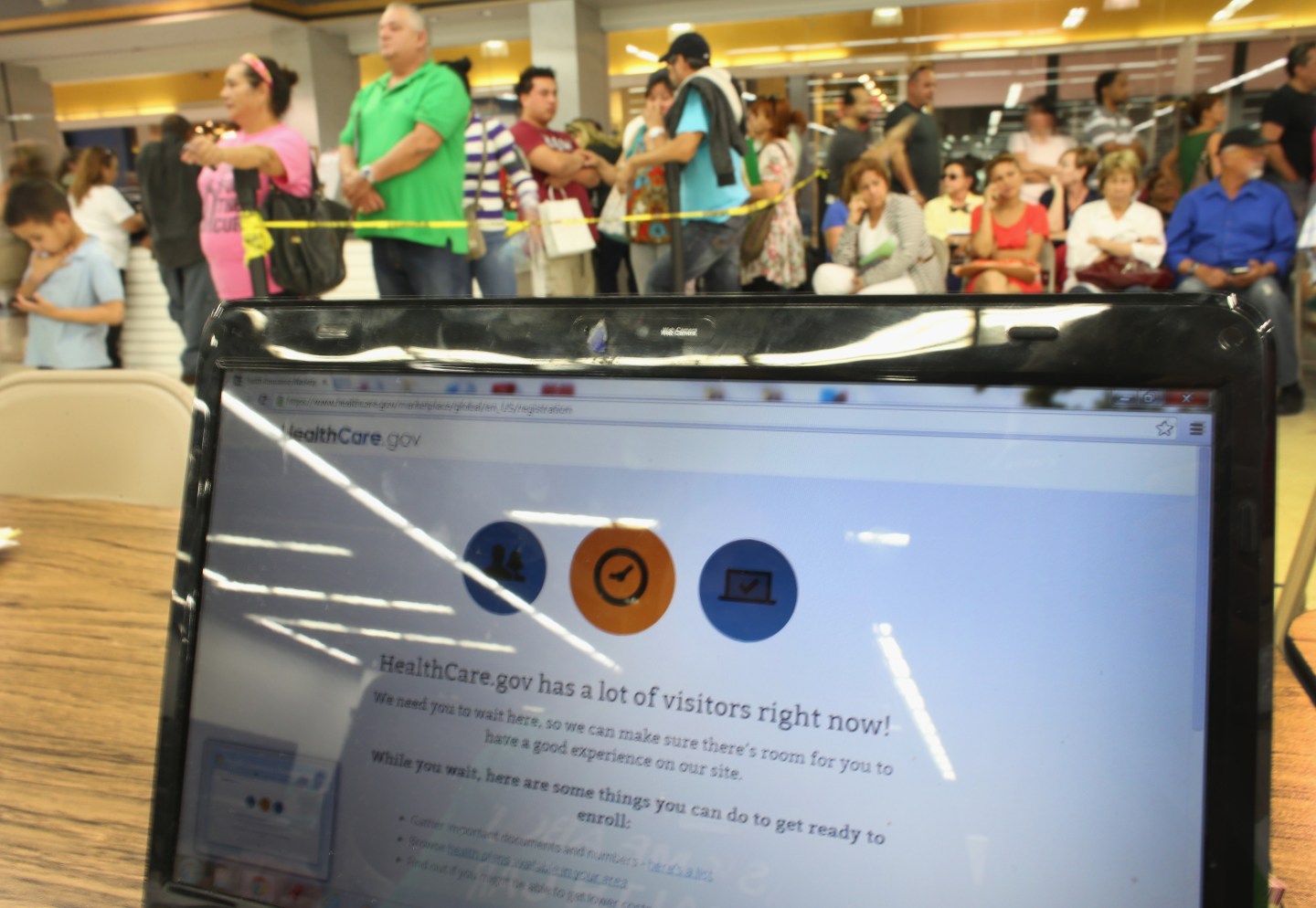Two years ago, when the Supreme Court ruled that Congress was authorized to require that most Americans obtain health insurance, it appeared as if the Affordable Care Act had survived what might have been its fatal blow.
But a stunning decision by the U.S. Court of Appeals for the District of Columbia Circuit on Tuesday once again put a significant part of the health care law on shaky ground.
In a 2-1 vote, the court ruled that the federal government does not have legal standing to grant subsides to low and middle-income residents who purchased insurance on federal exchanges.
The court sided with the individuals and small businesses that had argued that the financial assistance provided to low- and middle-income Americans through federal insurance exchanges violated the original intention of the ACA—that only state-run exchanges oversee the distribution of such stipends.
When the ACA became law in 2010, the idea was that each state would create its own insurance marketplaces. But opposition to the health care law soon became the battle cry of Congressional Republicans, and 36 mostly right-leaning states eventually declined to set up exchanges, leaving the task to the federal government.
Tuesday’s decision says that when the government established its Healthcare.gov marketplace on behalf of those three dozen states, it didn’t have the right to offer subsidized insurance premiums to those who qualified. The language of the Affordable Care Act, the court’s majority ruled on Tuesday, said that such financial assistance is “available only on exchanges established by states.” The dissenting judge said that Tuesday’s ruling “portends disastrous consequences.”
The ruling comes as a blow to the ACA, which aims to provide health coverage to the uninsured, not only because it puts at risk the financial assistance that some 4.7 million people have already qualified to receive, but also because, as public health academics pointed out in an amicus brief, the states that the federal exchange serves are home to some of the most vulnerable Americans.
According to the February 2014 brief, residents of states with federal exchanges make up two-thirds of the Americans who qualify for insurance subsidies (meaning, they earn somewhere between 100% to 400% of the federal poverty level). Compared to people living in states that set up their own exchanges, these residents are also more likely to report that they are unable to see a doctor due to cost, more likely to have been diagnosed with diabetes, more likely to be overweight, and more likely to live in communities identified as medically underserved because of poverty and limited access to primary care. On top of all of that, these states are home to 68% of the nation’s uninsured, including 84% of all uninsured low- and moderate-income African Americans, and 60% of such Hispanics.
While Tuesday’s decision is a serious strike against Obamacare, it is not final. And it came on the same day as another appellate court ruling from Richmond, Va. That decided just the opposite; that the subsidies for low- and middle-income Americans who bought insurance on federal exchanges could stand. The D.C. Decision will likely go before a larger appellate panel, and it’s possible that this will pave the way for a Supreme Court showdown.
If Tuesday’s decision by the D.C. Appeals court is upheld, “it could be devastating” to the health care law, said lawyer H. Guy Collier of McDermott Will & Emery, who represented the public health experts who submitted the amicus brief. The idea that Americans living in states with federal exchanges would be denied healthcare subsidies, he wrote in his brief, “contravenes Congressional intent” and “defies logic.”







